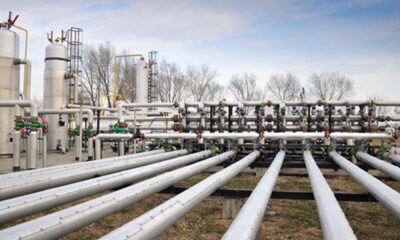Business
Nigeria can emulate U.S. pipeline success to boost gas sector

The Permian Basin in the United States is set to significantly enhance its natural gas pipeline capacity with the launch of the Matterhorn Express Pipeline, which will begin service this month.
The pipeline, with a capacity of 2.5 billion cubic feet per day (Bcf/d), will transport natural gas from the Permian Basin to Katy, Texas, addressing severe price volatility at the Waha Hub, where prices have often turned negative in 2024 due to rapid production growth outpacing existing infrastructure.
This expansion is complemented by additional major projects, including the Apex Pipeline (2.0 Bcf/d), Blackcomb Pipeline (2.5 Bcf/d), and Saguaro Connector Pipeline (2.8 Bcf/d), which are set to boost total pipeline capacity by 7.3 Bcf/d by 2027.
These developments aim to improve market connectivity and stabilize regional gas prices by alleviating bottlenecks and connecting production areas with domestic and international markets.
Nigeria, a major gas producer in Africa, faces its own challenges with underdeveloped pipeline infrastructure. The country’s gas sector suffers from inefficiencies such as gas flaring, inadequate investment, and ageing infrastructure.
However, the success of the Permian Basin’s pipeline expansions offers a valuable model for Nigeria.
By emulating the strategies used in the Permian Basin, Nigeria can make significant strides in its gas sector.
Nigeria’s gas sector has the opportunity to emulate the successful pipeline expansion strategies of the Permian Basin, enhancing its natural gas infrastructure, reducing environmental impacts from gas flaring, and bolstering its position in the global energy market.

















![BBNaija star, Whitemoney reveals why he's careful with ladies in the US [Video]](https://topnaija.ng/wp-content/uploads/2022/06/My-project-2-2-400x240.png)
![BBNaija star, Whitemoney reveals why he's careful with ladies in the US [Video]](https://topnaija.ng/wp-content/uploads/2022/06/My-project-2-2-80x80.png)












